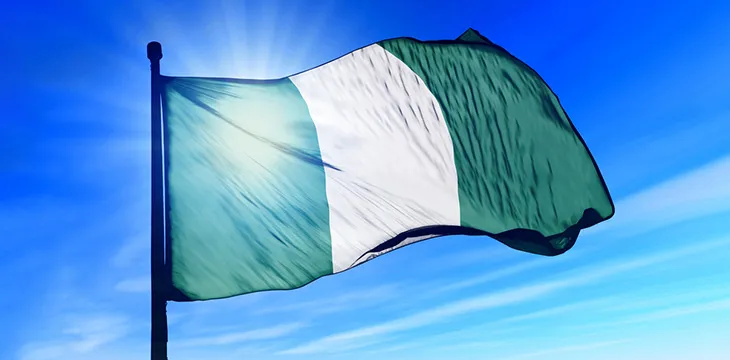|
Getting your Trinity Audio player ready...
|
Nigeria is Africa’s largest digital asset market and is among the global leaders in Bitcoin adoption. However, the government has strived to slow down digital asset adoption through restrictive regulations. The country’s president-elect vows to do better and champion the adoption of blockchain technology and digital assets.
Bola Tinubu was declared the winner of the February 25 election, garnering 37% of the votes. The seasoned politician and former Lagos governor, known as the ‘the political godfather,’ takes over from Muhammad Buhari, under whose regime banks were prohibited from serving digital asset firms.
But despite having been political allies under the same party, Tinubu has pledged to support emerging technologies, including blockchain.
“We will reform government policy to encourage the prudent use of blockchain technology in finance and banking, identity management, revenue collection, and the use of crypto assets,” Tinubu says in his 80-page manifesto.
Nigeria has stifled digital asset growth through regulations and decrees, such as the central bank’s directive to commercial banks to refrain from serving virtual asset service providers (VASPs). The Central Bank of Nigeria (CBN) criticized the opacity of digital assets, which it claimed makes them well suited “to conducting many illegal activities including money laundering, terrorism financing, purchase of small arms and light weapons, and tax evasion.”
In recent times, the anti-Bitcoin stance has softened. Last December, it emerged that lawmakers were discussing a new bill that would legalize digital assets in the West African nation.
Tinubu, who assumes office on May 29, has promised Nigerians that this Bitcoin-friendly direction will be upheld under his leadership.
“As part of our reforms, we will establish an advisory committee to review the existing regulatory environment governing blockchain technology and virtual asset services and, where necessary, suggest changes to create a more efficient and business-friendly regulatory framework,” his manifesto reads.
The president-elect will also push Africa’s first central bank digital currency (CBDC), the eNaira. eNaira has seen slow adoption in a country that boasts of being the world’s seventh-most-populous country. CBN recently revealed that it’s on the hunt for new tech partners to fix the digital currency.
“We will also encourage the CBN to expand the use of our digital currency, the Enaira,” Tinubu’s manifesto says.
Aside from the direct efforts to push Bitcoin adoption, Tinubu pledged to pursue the National Broadband Plan that aims to deliver broadband services to 90% of the 206 million Nigerians. This ambitious goal would play a significant role in Bitcoin adoption as internet connectivity continues to be among Africa’s biggest hurdles. In Nigeria, only 38% of the population is connected to the internet.
Watch: Blockchain in Africa

 07-08-2025
07-08-2025 





